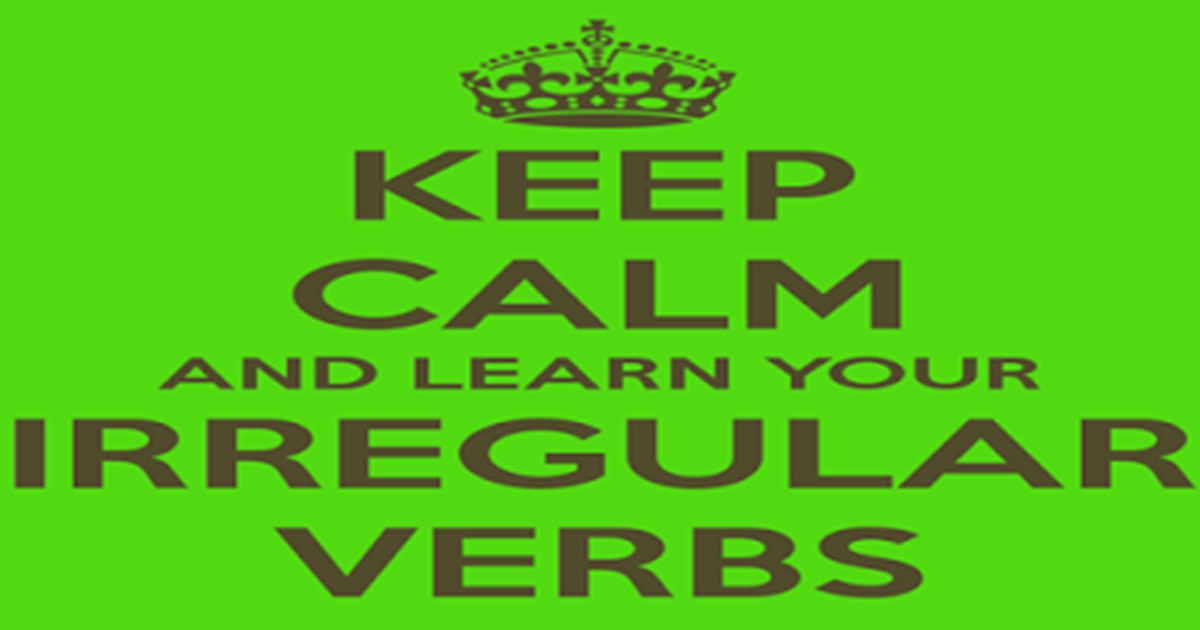

So, these are the main points that you need to remember to understand and identify regular verbs. Or we can simply say if a verb ending with “ y” has a vowel preceding it, we only add “ -ed“. If the verb has a consonant-vowel-consonant format but ends with “ y, w, or x,” we only add “ -ed”. If the verb has a format of consonant-vowel-consonant in its last three letters, we need to double the last letter and add “ -ed“. If the verb ends with an “ e”, we add only “ -d“. However, there are some rules regarding the spellings of the verbs while turning them into past forms. This means that the forms of the verb do not follow this basic pattern. The English language has many irregular verbs. Lets review using the verb 'laugh': Simple Present: verb or verb + 's' laugh or laughs. Since its rule is still the same, it is a regular verb. Examples of Irregular Verbs: For regular verbs, the formation of the five forms follows a pattern. So, if we have a verb such as “ cry”, we simply turn it into “ cried”. Since it conforms to the usual rule, it is called a regular verb.Īnd if a verb ends with the letter “ y”, it is changed into the letter “ i” and then added with “ -ed“. When we try to change it to its past or past participle form, we will simply add “ -ed“, so we get “ arrived”. Now, the verb “ arrive” is in its base form. To be more precise, let us take one example verb – “ arrive”. This means they can be turned from their base form to their past form by using the usual method of adding “ -ed” or “ -d“. In simple words, regular verbs are the type of verbs that use the usual rule to form their simple past tense or past participle. So, when verbs that are in the base form can be changed or conjugated to their simple past tense or past participle in a traditional way, that is by adding “ -ed” or “ -d” at the end of the word, they are known to be regular verbs. The present or the base form, which is basically the present simple tense of a verb, generally describes an action happening now. Now, verbs are mainly seen in three forms – Present, Past, and Future. Verbs are the words that usually describe an action done by someone. So, let us have a comprehensive discussion to avoid any misconceptions. However, one needs to have a clear idea of its concept to identify them correctly. Regular verbs are easy to learn and understand. He has rung the bell twice but no one has answered.In this post, we will focus on the former type i.e. I have swum the butterfly stroke in competition.Ħ. I have gone to the dentist but my tooth still hurts.Ĥ. He has rang/rung the bell twice but no one has answered.ģ. He ringed/rang the bell before entering.Ħ. I have swam/swum the butterfly stroke in competition.ĥ. I have went/gone to the dentist but my tooth still hurts.Ĥ. I am running around the track every day this week.ģ. I have run around the track every day this week. I will run around the track every day this week. I will be swimming at my aunt’s house this afternoon. I have swum at my aunt’s house every afternoon this week. I swim at my aunt’s house in the afternoon. I am going to my aunt’s house this afternoon. I have gone to my aunt’s house every afternoon this week. I go to my aunt’s house in the afternoon. Present participle (- ing ending formed with to be verbs such as is, have been, will be, could have been, etc.)

Past participle (used with helping verbs such as have, has, will have, etc.) Present tense (used alone or with helping verbs such as will, did, etc.) Use helping verbs only with an irregular verb’s past participle.Įxample: I went to the store.

Note: Do not use helping verbs such as has or have with the past tense form of an irregular verb. Verbs in English are irregular if they don’t have a conventional -ed ending in the past tense.Įxample: Go (present tense), went (past tense), gone (past participle) A verb is called a regular verb if its past tense and past participle are formed by adding -ed ( wait ed, insist ed) or sometimes just -d ( breathe d, replace d).


 0 kommentar(er)
0 kommentar(er)
